
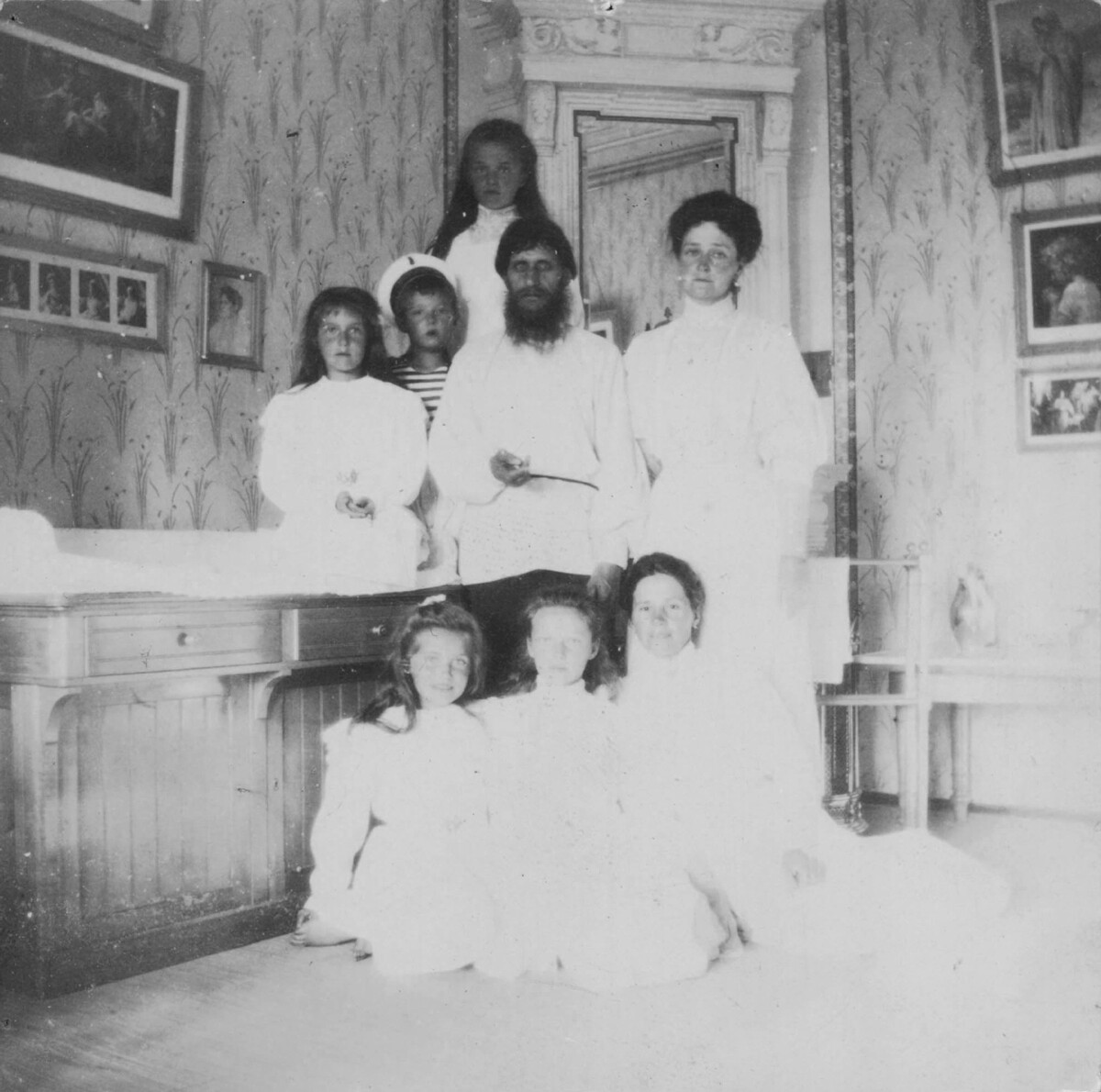
Empress Alexandra Feodorovna with Rasputin, her children and governess Maria Vishnyakova
State Archive of the Russian Federation / Public Domain“Ra, ra, Rasputin, lover of the Russian queen!” – you probably remember Boney M’s smash hit about Grigory Resputin. Rumors that he was Alseksandra Fedorovna’s lover were quite commonplace since 1912, during Rasputin’s lifetime. There were even pornographic caricatures circulating around town, with short stories and little poems, as well. This is probably the biggest urban legend there is regarding the tsarist ‘monk’.
Rasputin loved to boast about the attention he was getting from the Romanovs, which led to numerous different interpretations. However, the specific rumor of an affair with the Russian empress has been dismissed as baseless. For a long time, the alleged proof was seen in the letter Aleksandra Fedorovna wrote to her spiritual advisor: “How dull it is without you. I only rest easy when you, my teacher, sit by my side and I kiss your hands and lean my head on your blessed shoulders.” The letter was published by hieromonk Iliodor (Sergey Turfanov) in his book, which slanders Rasputin. However, even if the letter is genuine, there remain no registered cases of Rasputin and Aleksandra Fedorovna ever being alone with one another - and their schedule at the palace was a matter of public record.
There were no other strong indicators of an illicit affair. The diaries and correspondence with the Royal family never point to there being one. Even the Provisional Government’s investigative committee looked into the matter in 1917, after the February Revolution ended the tsarist regime. It stands to reason that the letter itself may well have been entirely fabricated.
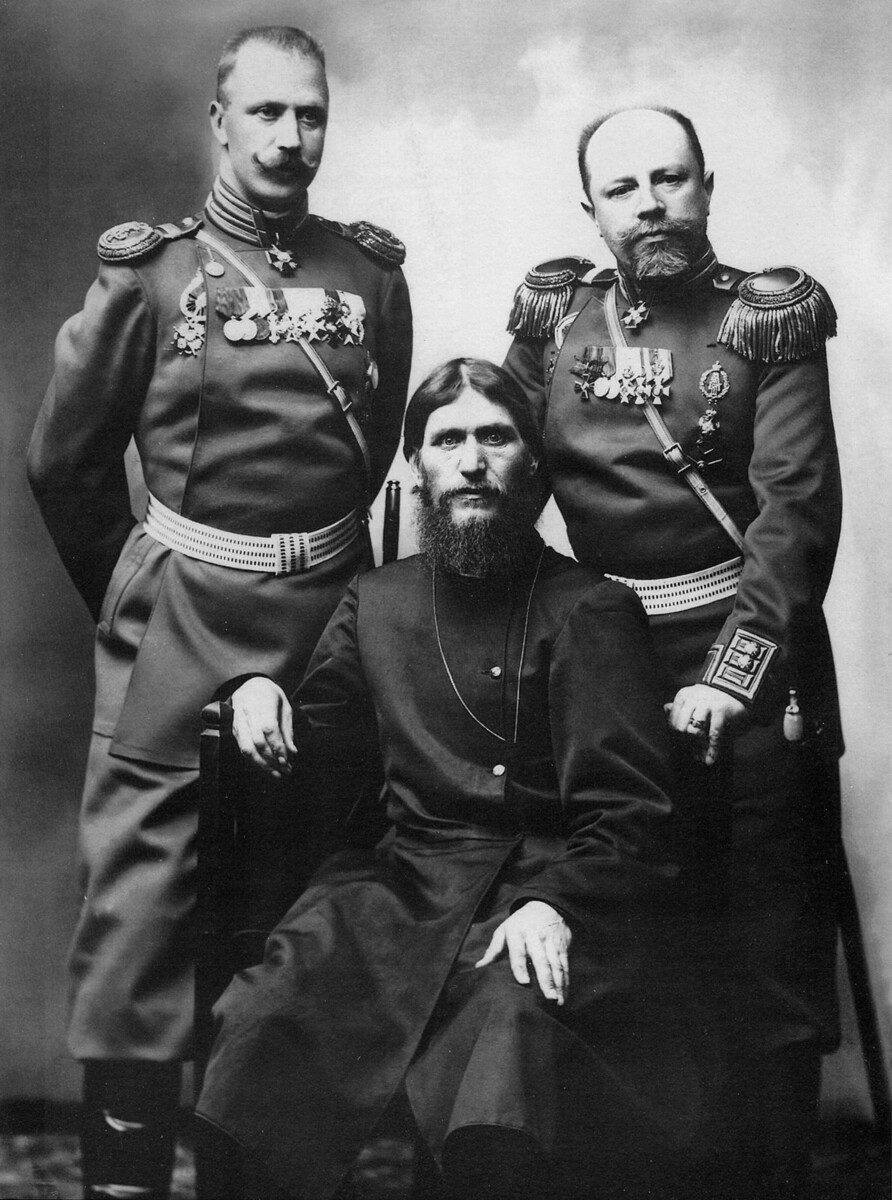
Grigory Rasputin, Major General Putyatin and Colonel Loman
Karl Bulla / Public DomainAnother accusation, often floated by the State Duma, was that Rasputin exerted a strong influence on tsar Nicholas II and his policies. As much was being mentioned in books and memoirs. However, things are a little more complex.
The tsarina would constantly write to Nicholas about what Rasputin had thought of the war and just about any other political matter. The correspondence referred to him as “our friend”. This perceived influence would increase after 1905, during the first Revolution, which threatened the monarchy. This annoyed a lot of political players. But did any of this amount to Nicholas actually following what Rasputin was saying? Not very often, it appears. Historian Sergey Oldenburg studied the letters Aleksandra wrote to Nicholas, with the analysis showing that the tsar - even though Nicholas was known for his softness and indecisiveness - rarely listened to the family “friend”.
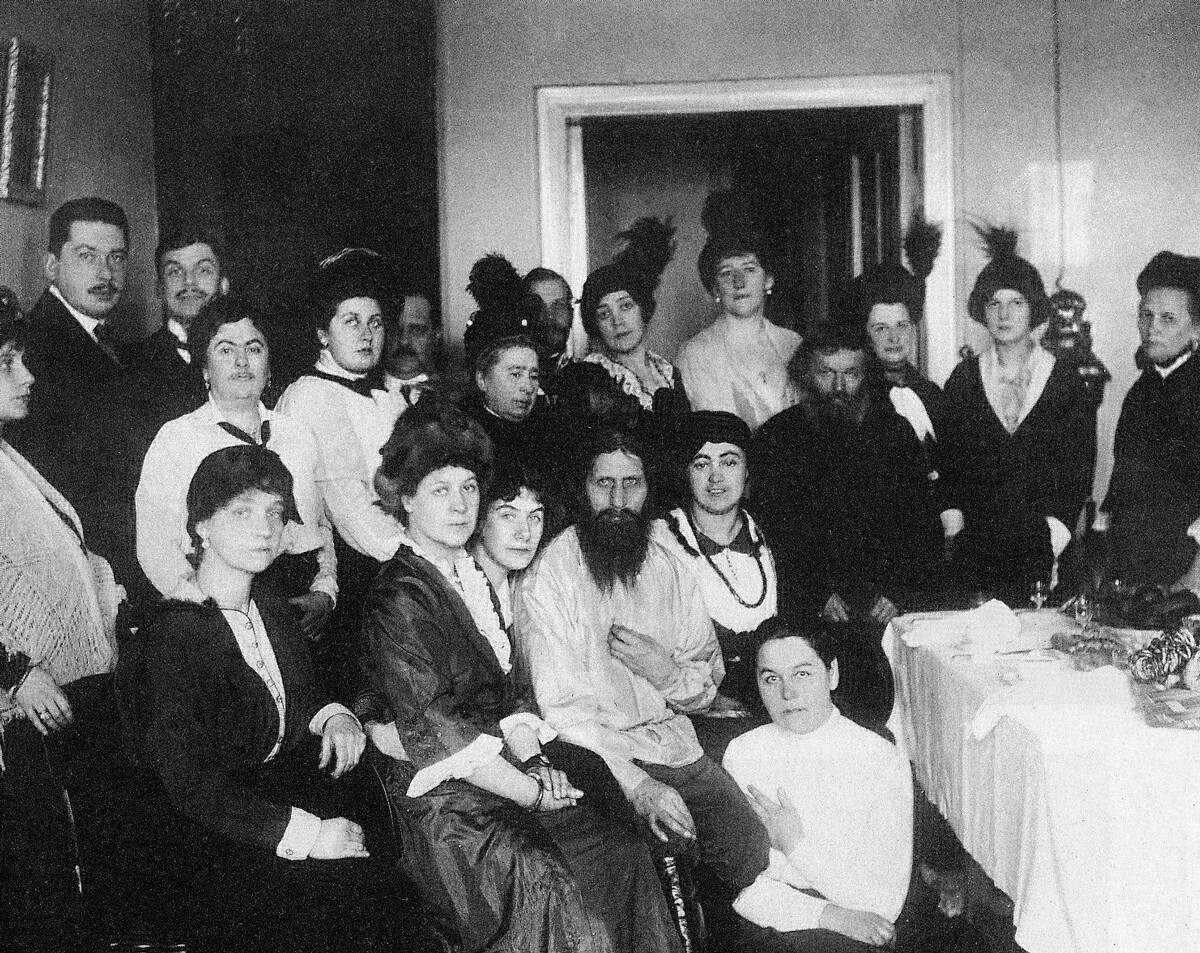
Rasputin and his admirers, 1914.
Karl Bulla / Public DomainThe police used to watch Rasputin and gather intel on everything he did. There are mentions of the so-called monk visiting sex workers, as well as partying like there was no tomorrow. However, the rumors of there being orgies involving members of the Royal court have remained unsubstantiated. Detective Vladimir Rudnev of the Provisional Government’s investigative committee would write in 1917 that, after familiarizing himself with all the evidence, “...meanwhile, there is nothing to support the view that Rasputin’s nocturnal orgies with street ladies, singers and even some of his spiritual followers, are anything more than what they are. As for closeness with the ladies from high society, there has been no positive evidence gathered by the investigation regarding the matter.”
Nevertheless, some high society women would admit to having illicit meetings with Rasputin. They denied the rumors of the orgies, however.
All of these compromising details were being brought to Nicholas II’s attention, but the tsar considered this to be a grievous invasion of the spiritual healer’s privacy, given Rasputin’s status as basically another member of the Royal family. The tsarina, for her part, never believed the rumors from the start, believing Rasputin to be a genuine holyman.
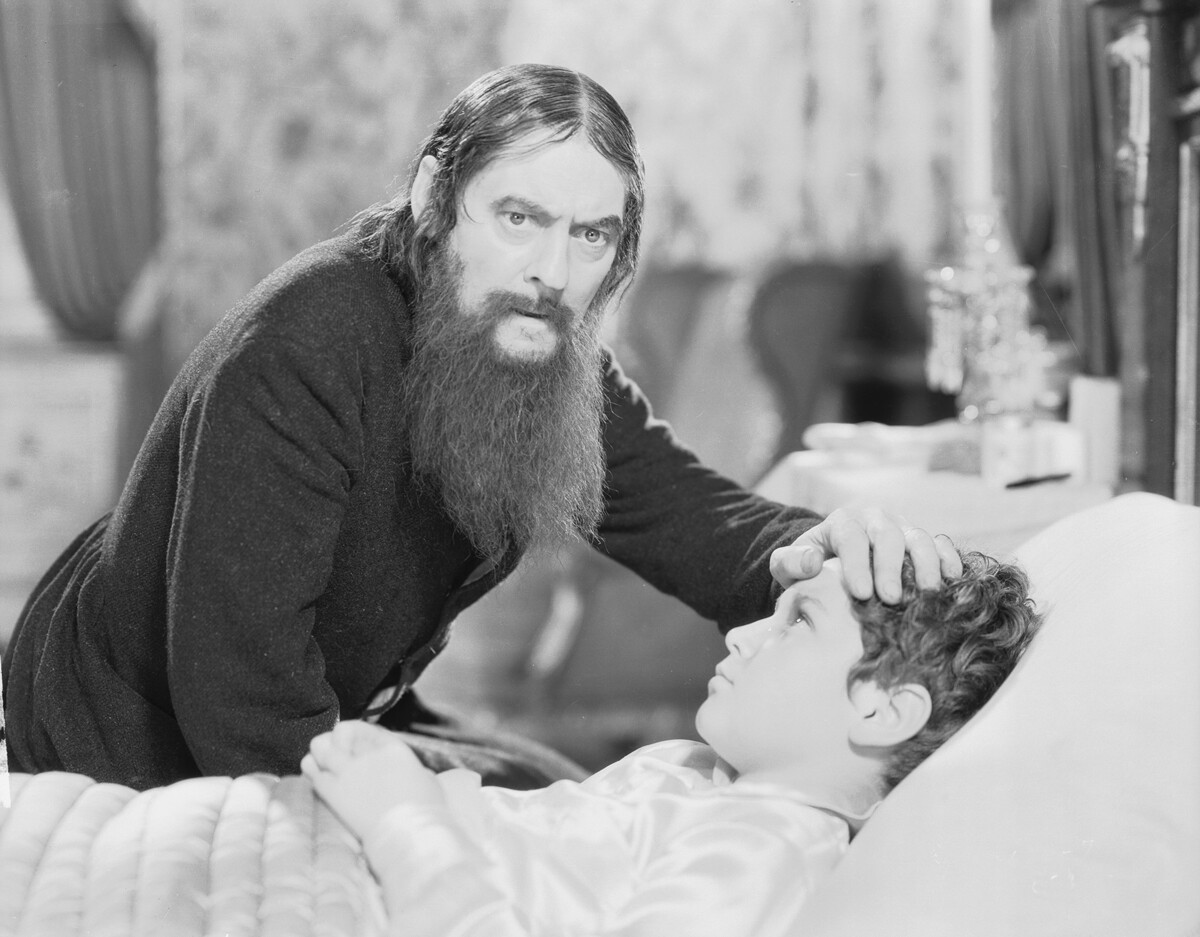
'Rasputin and the Empress', directed by Richard Boleslawski
John Kobal Foundation/Getty ImagesRasputin’s alleged exploits in healing people received as much attention as the purported orgies did. Thanks to this reputation as a healer, Rasputin became very close with the Romanovs and an indispensable court figure. It became clear that medicine was powerless to cure Nicholas’s only son Aleksey’s hemophilia. Any bruise resulted in internal bleeding, which could last for days, bringing untold agony to the young prince. However, there is substantial evidence pointing to how, after contact with Rasputin, the heir to the throne was always better. It’s as though Rasputin was the cure.
“He [Rasputin] arrived in the palace and, together with the parents, went to visit Aleksey Nikolaevich. According to their stories, when he would approach the bed, he would make the sign of the cross on the heir and tell the parents that it was nothing serious and they had nothing to worry about - and left. The bleeding stopped,” the empress’s closest friend, Anna Vyrubova, recalled.
But there’s another opinion about Rasputin’s supposedly miraculous powers. Some simply referred to him as a charlatan, who weaseled his way into the empress’s good graces. Others - such as the metropolitan Vaniamin - noted that the wise man had great powers of persuasion and the looks to go with it - a heavy, “hypnotic” gaze.
It appears that Rasputin, in some way, exerted influence on the Royal family and heir, calming them with prayer and conversation. However, it can be said with certainty that Rasputin never cured Aleksey of hemophilia. The last time the sickness flared up was in 1918, several months before the prince’s tragic death.
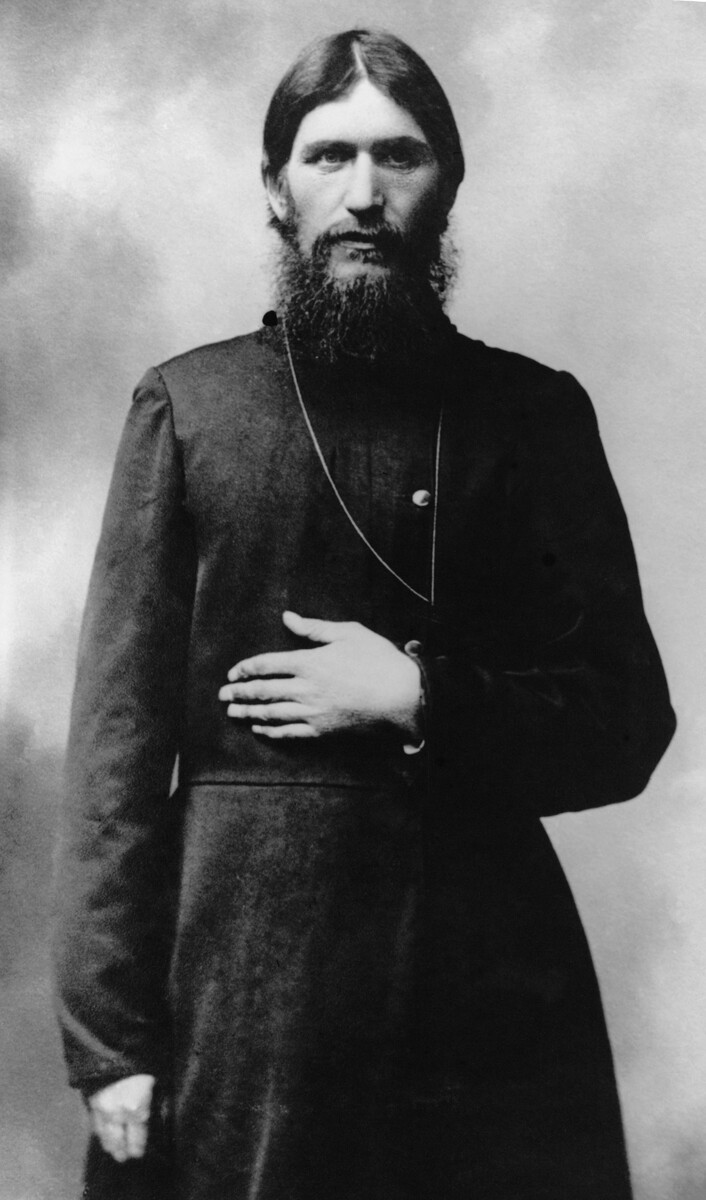
During his life, Rasputin had a reputation as a healer, but the label of “seer” is something that came later, posthumously. The old man has often been credited with predicting the Russian Revolution and the demise of the Romanovs - as well as another world war, which we have yet to see.
Meanwhile, any discussions regarding his abilities often reference the empress’s little notebook, which she used to record her “spiritual advisor’s” thoughts. The only other record of such things is Rasputin’s own 1912 pamphlet, titled ‘Pious Thoughts’. But neither actually contains any talk of fortune-telling. The most famous of all of these supposed prophecies comes from his daughter Matryona’s testimony, which quotes Rasputin as saying: “When I’m gone, so will the Royal court be.” Very ominous-sounding. However, even if Rasputin did indeed utter the words, they could easily have been construed as an attempt at manipulation, in order to continue to remain in the Romanovs’ circle of trust at times when various powers were doing their best to knock him off his pedestal.
It’s also worth noting that much of what was predicted by Rasputin simply didn’t materialize. For instance, he promised a quick victory in World War I, as well as Aleksey’s ascension to the throne. We know how both turned out.
If using any of Russia Beyond's content, partly or in full, always provide an active hyperlink to the original material.
Subscribe
to our newsletter!
Get the week's best stories straight to your inbox